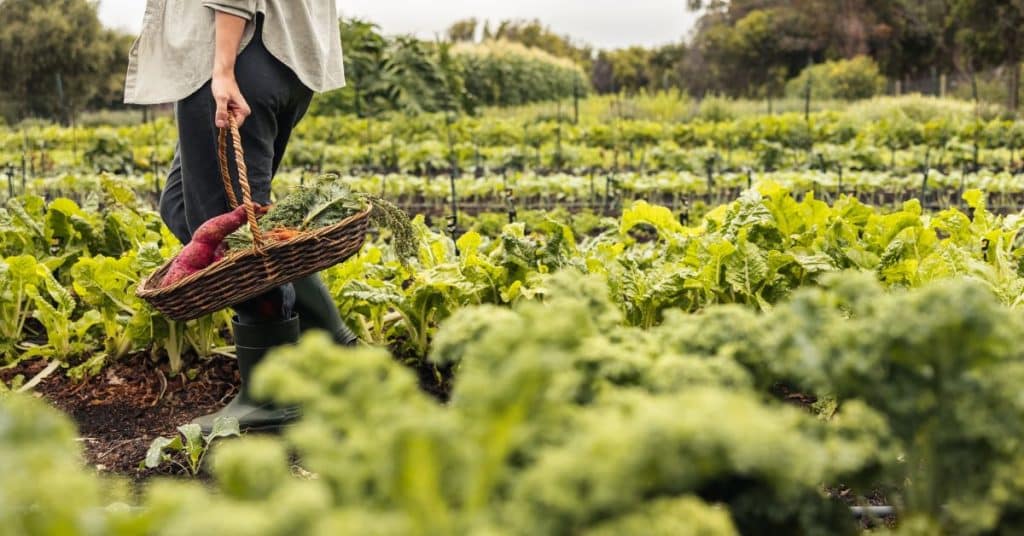

In the ongoing debate concerning organic versus conventional farming, it’s commonly believed that conventional agriculture is necessary to meet the growing global demand for food, particularly for staple crops like corn and soybeans. However, decades of research from the Rodale Institute show that organic farming can not only match but often outperform conventional methods in terms of yield, sustainability, and profitability. Here’s how organic farming is proving to be more efficient, especially given climate change and environmental challenges.
To compare conventional and organic farming methods, the Rodale Institute established the Farming Systems Trial in 1981 and the Vegetable Systems Trial in 2016.[1] These trials have provided side-by-side comparisons to measure differences in yields, soil health, and operational costs. The goal is to refine agricultural practices that improve both personal and planetary health, while also dispelling misconceptions about organic farming’s ability to feed the world.
Organic yields for crops often match or even exceed conventional yields. During periods of drought or flooding, organic systems yield up to 30% more than conventional methods, even for staple crops such as corn and soybeans. As climate change creates more unpredictable weather patterns, organic farming’s adaptability makes it a more viable option for ensuring food security and meeting global food demand, contrary to prevailing misconceptions.
Yield differences owe largely to organic farming’s effects on soil health. Practices such as crop rotations, cover cropping, organic composting, and minimal tillage significantly increase soil organic matter, microbial biomass, diversity, and activity. This results in healthier, more resilient soils that are less prone to compaction and better able to retain water. Whereas organic farming preserves soil quality and productivity for future generations, conventional farming often depletes soil with the use of synthetic fertilizers and pesticides.
Additionally, while many people believe organic farming is only profitable because of the higher premiums paid for organic crops, evidence shows that organic systems can be more profitable even without these premiums. Organic farming relies on natural inputs, rather than expensive synthetic fertilizers and pesticides, which lowers operational costs. Once an organic system is established, the costs of farming are significantly lower than those of conventional methods, making organic farming a financially sustainable option. Though the transition to organic farming may require some initial investment and temporary drops in yields, once in place, organic systems provide long-term financial benefits, making them a more cost-effective choice over time.
Organic farming is not just a niche alternative; it is a sustainable, productive, and profitable approach to agriculture. Demonstrating organic farming’s higher resilience to extreme weather, comparable yields for cash crops, improved water quality, and lower operational costs, Rodale’s farming systems trials make a compelling case for shifting away from conventional farming methods. By prioritizing soil health, reducing environmental impact, and increasing profitability, organic farming offers a path toward a more sustainable agricultural future.
Here is a short clip from a video from our Food and Sustainability Certificate that highlights the incredible work being done by the Rodale Institute.
Copyright 2026 Center for Nutrition Studies. All rights reserved.